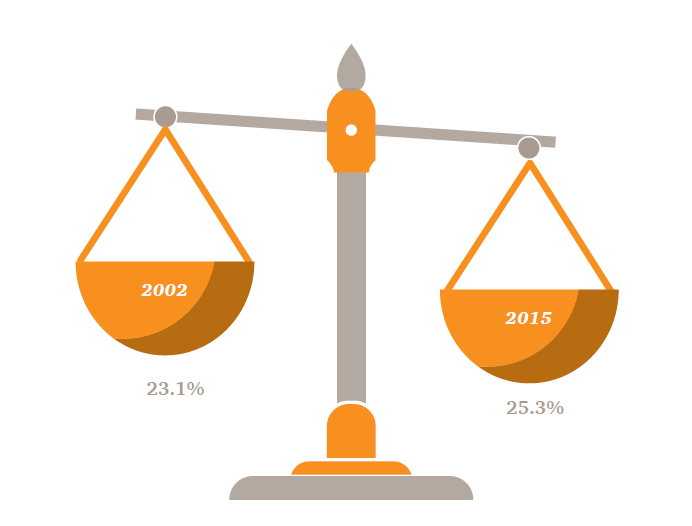
Over the past 30 years the prevalence (occurrence) of overweight and obesity has increased significantly 1 and Malta is no exception. An analysis of the trend over the years indicates that the percentage of obese individuals has increased from 23% in 2002 to 25% in 20152. A recent study carried out in school- aged children noted that approximately 40% of children in Malta are overweight or obese 3. This means that 4 out of every 10 children have this problem. Childhood obesity is one of the most serious health problems we are facing in today’s world.
The obesity problem is often simply explained as being a matter of calories in versus calories out – we eat too much food and burn off a little energy. This may sound really simple, however as human beings we are complex and if tackling obesity was a simple mathematical equation it would probably not be much of a problem. Many factors in a child’s life play an important role and can lead to childhood obesity. Such factors include genetic, environmental and social factors amongst others and as parents it is your duty to adopt various strategies to prevent your child from having excess weight. Unfortunately we are living in an ‘obesogenic environment’ (an environment that promotes weight gain) which does not help us. Children and adults alike are constantly being exposed to foods that have a tendency of making us gain weight and being tempted by technology and screen time which reduces physical activity time. The occasional birthday cake or screen game are nothing to worry about however when this becomes the norm then yes it becomes a problem!
Obese children tend to become obese adults. Childhood is therefore the best time to stop obesity and turn to lifelong healthy habits. No drastic or severe measures are required but rather small and consistent measures that require progress. Start today by offering a healthy snack instead of sweets or go for a short walk instead of watching TV. There is no magic bullet to stop obesity but it is up to one’s own individual motivation to adopt a healthy lifestyle and not fall into the trap of promotional propaganda and special offers. Choose fresh and local produce and limit processed foods to the barest minimum.
AUTHOR : Melania Spiteri B.Pharm (Hons), pg dip nutr & diet, M.Ent.
Melania is a state registered pharmacist and nutritionist.
- Global status report on noncommunicable diseases 2010. Geneva, World Health Organization, 2011. Available at: http://www.who.int/nmh/publications/ncd_report2010/en/ [accessed March 2018].
- Weighing the Costs of Obesity in Malta. PwC Report. March 2017
- Grech, V., Aquilina, S., Camilleri, E., Camilleri, K., Busuttil, M. L., Farrugia Sant’Angelo, V. & Calleja, N. (2016) The Malta Childhood National Body Mass Index Study – a population study. Journal of Pediatric Gastroenterology and Nutrition. doi: 10.1097/ MPG.0000000000001430.
